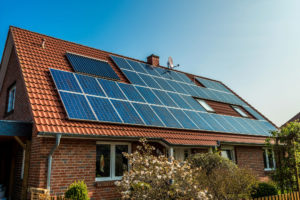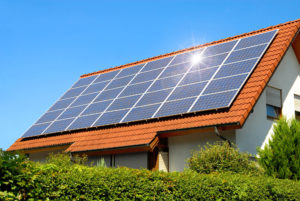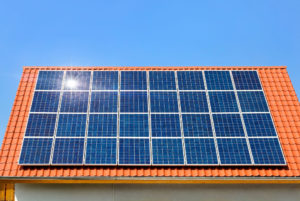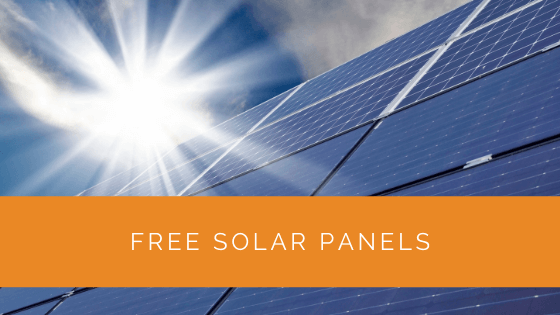Ecologically conscious consumers have always sought sustainable energy sources to fulfil their needs. Solar power has always been one of their top favourites for its convenience and affordable prices.
Solar panels are the way to go to harness solar energy easily. You can install them fairly easily at home and generate electricity conveniently without any added manual labour. They are a great alternative to conventional fossil fuels and reduce carbon emissions and energy bills, making you an active contributor to the noble cause of sustainable living.
Contents
- 1 Key Takeaways
- 2 The UK and its renewable energy goals
- 3 Benefits of installing solar panels at home
- 4 The number game for solar panels
- 5 Some notable Incentives for solar panels in the UK
- 6 Free Solar Panels for Businesses
- 7 Checklist Before Getting Free Solar Panels/ Solar Panel Grants
- 8 Discover the Power of Solar with Solar Panels Network
- 9 In conclusion
Key Takeaways
- Solar panels offer numerous benefits, including free electricity, reduced carbon emissions, and easy installation on standard roof space, making them an attractive option for environmentally conscious consumers.
- The UK government has actively promoting renewable energy, with incentives and schemes to encourage solar panel adoption, such as the Smart Export Guarantee (SEG), Feed-In Tariff (FIT), and Renewable Thermal Incentive (RHI).
- Depending on eligibility criteria and specific schemes, various opportunities exist for homeowners to access free solar panels, including government grants, low-interest loans, and reduced VAT rates.
The UK and its renewable energy goals
The UK Government has had a robust agenda for promoting and advocating renewable energy sources for several years. The EU’s Renewable Energy Directive lays down the target for all member countries to attain a 32% renewables target before 2030.
The UK has been very particular in its endeavours to achieve this goal, focusing on introducing an increasing number of schemes and incentives in the renewable energy domain.
This general inclination is accompanied by a reduction in the price of solar panels, which is easy on the pockets of the environmentally-conscious consumer category looking for a significant reduction in their electricity bills and generated carbon footprint at the same time.
Benefits of installing solar panels at home
 There are numerous benefits attached to this one step, such as:
There are numerous benefits attached to this one step, such as:
- Free electricity: As is evident, sunlight comes free. The only investment needed for solar panel installation is the one-time upfront cost of installation itself, and that’s that. Hence, solar panel owners could save on significant electricity bills that they would otherwise run up with conventional energy sources.
- Carbon footprint reduction: On average, traditional solar PV panels reduce up to one tonne of carbon emissions per household. This guarantees a cleaner and greener environment and reduced energy bills.
- Convenient to install: All one would need for solar panel installation would be a standard amount of roof space. The requirement is minimalistic and doable for almost every house owner.
The number game for solar panels
The average domestic solar PV system is 3.5kWp and costs around £4,800. A solar PV system for a three-bedroom house in the UK currently costs less than £6,000 compared to around £20,000 just a decade ago. That might be economical for some when they buy new solar panels for their home.
But for others, the initial investment might seem like a burden and make them wonder what might be a way to get free solar panels and how to go about it. Well, the good news is, though there aren’t any grants in the traditional sense, there are opportunities for solar panel funding in the UK.
Let us have a look at such free solar panel schemes and grants in greater detail now:
Solar Panel Grants and Schemes
A set of free solar panel schemes was enacted on 1 January 2020. All house owners with standard solar panels installed in their homes can apply for these schemes and grants. There are government grants for solar panel setup and loans and schemes provided by certain companies, which we shall discuss further in this article.
How these grants and schemes work
The schemes prevalent in the UK for its citizens to avail solar energy panels for free do not work straightforwardly; after that, a solar panel installer does the entire setup for you for free, and you are good to go. They rather involve methodical schemes that incentivise the consumers to go ahead with the whole plan in the first place, such as:
- Consumers are eligible to receive payments for selling any surplus energy they generate back to the national grid.
- Certain companies offer homeowners loans at a low-interest rate and reasonable repayment plans to aid their switchover to the solar PV systems setup.
- For senior citizens and those with a disability, a tax (VAT) concession of 5% is made available on the charges levied to install solar panels or on the product.
- Most banks offer personal loans specifically for home renovations that can be used to set up renewable energy units, such as buying solar panels.
Some notable Incentives for solar panels in the UK
Smart Export Guarantee (SEG)
The Smart Export Guarantee (SEG) was enacted on 1 January 2020 and is currently the only solar panel financing available in the UK. The SEG allows small, low-carbon electricity producers to pay for the excess energy they send back to the grid.
 Although not subsidised directly by the government, all licensed suppliers must now provide export duties to their customers. Providers with more than 150,000 customers must provide a fee, and providers with fewer customers can participate voluntarily. All homeowners with existing solar array systems (up to 5 MW) can apply under the SEG program.
Although not subsidised directly by the government, all licensed suppliers must now provide export duties to their customers. Providers with more than 150,000 customers must provide a fee, and providers with fewer customers can participate voluntarily. All homeowners with existing solar array systems (up to 5 MW) can apply under the SEG program.
Also, homes should be equipped with smart meters to measure exports. Most energy providers also offer tariffs on the energy emitted by solar array storage systems. This incentive makes solar panels a great home improvement project.
With SEG, homeowners now benefit 100% from the hard work of solar panels; here’s the mechanism:
- All solar power consumed contributes to energy cost savings. According to the Energy Saving Trust (EST), this can save up to £330 a year.
- All unused solar power is exported to the National Grid and purchased from the power company. Multiple suppliers pay about 5.5p / kWh. According to EST, a 4kWp PV system can earn about £94 a year at an SEG rate of 5.5 / kWh.
The best way to get the most out of your solar panels is to combine them with solar batteries to create a “solar plus storage” system. Solar cells store all the electricity generated during the day (when absent) and can be used in the evening.
Feed-In Tariff (FIT)
Feed-In Tariff is one of the solar panel grants introduced in 2010 and has been in place with a lot of success for many years since then. The FIT scheme closed for new applications in 2019, but those currently enrolled will continue to be beneficiaries of it.
Under this scheme, people who generate electricity using solar panels (or wind turbines) receive a fixed amount (kilowatts per hour) per unit produced and sell it back to the grid for additional electricity.
The exact amount of feed-in tariff payments received depends on the size of the solar panel system, the type of technology, and the duration it has been installed. The payment period is 20 years from the date of establishment, dramatically shortening the initial investment payback period.
You have to select a certified installer, after which you can choose whether to receive payment from your energy supplier or a list of registered suppliers. Payments are of two types:
The power generation rate is the set amount for all energy generated and used according to the abovementioned factors. Rates range from 6.3813.88 pence per kWh/h depending on system size.
Export duty refers to excess electricity sold, charged at 4.77 pence per unit. Half of all energy produced can be sold.
Renewable Thermal Incentive (RHI)
If you want to install solar panels for home heating, you can use the RHI plan. Originally introduced to the commercial sector, the initiative was expanded to domestic use in 2014. The scheme expired on 31st March 2022.
Reduced VAT for Energy-Saving Products
As mentioned earlier, a 5% tax reduction is applicable, but with certain prerequisite conditions applicable.
To qualify for the reduced rate, you must be over 60 or getting one or more of the following:
- Child Tax Credit (but not the family element)
- Council Tax Benefit
- Disability Living Allowance
- Personal Independence Payment
- A disablement pension
- Housing Benefit
- Jobseeker’s Allowance (income-based)
- Income Support
- War Disablement Pension
- Working Tax Credit
You will also be eligible to get the concession rate on the solar PV panels or solar thermal panels if their total cost (not including VAT) is not over 60% of the installation cost (not including VAT).
If the solar panels installed cost more than 60% of the installation, you will be entitled to only availing the reduced rate on the installation. Your supplier will be responsible for charging you the correct rate of VAT.
The Green Homes Grant Scheme
 Under the Green Homes Grant Scheme, you can apply for one or multiple primary home improvement projects. One such is the Solar Thermal project.
Under the Green Homes Grant Scheme, you can apply for one or multiple primary home improvement projects. One such is the Solar Thermal project.
Solar thermal panels use solar energy to heat water in your home. The working principle of solar panels is very simple. They use panels called solar collectors to absorb the sun’s heat.
Solar panels should not be confused with solar panels that use solar energy to generate free electricity. So, solar panels and solar thermal are two completely different technologies.
The Green Deal
In 2013, the government established the Green Deal, giving people loans to help them buy solar panels, among many other energy-efficient home improvements.
2014, the government launched a second green deal that replaced loans with subsidies.
In 2015, the government revoked the Green Deal due to homeowners’ lack of interest.
Free Solar Panels for Businesses
The Renewable Energy Hub offers commercial solar energy grants. If your business qualifies, they are your business’s go-to solar panel installers and suppliers for free.
Such schemes claim that their systems are highly beneficial for your CSR and bottom line and visibly help reduce your carbon footprint. Once installed, your business will benefit from a highly subsidised rate per unit of power consumed.
There are no hidden costs or monthly fees, no distribution fees, and the system will increase the asset’s asset value accordingly.
There is a set of conditions your company must meet to be eligible-
- Must be able to pay 12 months’ electricity bill.
- You must be able to rent a roof legally.
- If the roof is sloping, preferably south-facing, flat or slightly sloping.
- The roof must be structurally sound and not made of asbestos.
- The company must be established and stable. A credit rating is given.
- Finally, the building must be connected to a local network operator (national power grid).
Checklist Before Getting Free Solar Panels/ Solar Panel Grants
- To begin with, check with your mortgage provider– they might not consent to the installation and might have concerns about the type of contract.
- Ask the pertinent questions to the installer/company – do thorough research and make sure you go into the process knowledgeable.
- Scrutinise your contract carefully and get the proper legal advice. You are signing a 20-25-year contract, so be fully aware of what you are signing up for.
- What if the free solar companies go kaput? Check who is responsible for repairs to the roof and solar equipment.
Discover the Power of Solar with Solar Panels Network
Are you navigating the world of solar installations? Look no further than Solar Panels Network, the UK’s trusted partner in harnessing the sun’s potential. Our dedication goes beyond just installations; we’re on a mission to transform how homeowners and businesses across the UK perceive and utilise energy. By choosing us, you’re reducing your carbon footprint and making a smart financial move that promises savings for years ahead. Contact us today and embark on your solar journey.
In conclusion
Previously, if you couldn’t afford to buy solar panels, you could buy solar panels for free from a company that rents roof space for up to 25 years. Under this system, companies offer free solar panels, and offer free installation and maintenance of solar panels.
Instead, a “Solar Buyback” scheme has become another way for businesses to offer homeowners a lump sum payment instead of collecting the FIT payments that homeowners would receive. However, to determine if this repurchase program is worthwhile, evaluating such offers about the total FIT payments received is important.
So, well equipped with solar finance knowledge and the host of benefits solar power systems bring, there is no stopping you from going all eco-friendly with free electricity generated.
About the Author
Solar Panels Network stands at the forefront of solar energy solutions, driven by a team of seasoned solar engineers and energy consultants. With over decades of experience in delivering high-quality solar installations and maintenance, we are committed to promoting sustainable energy through customer-centric, tailored solutions. Our articles reflect this commitment, crafted collaboratively by experts to provide accurate, up-to-date insights into solar technology, ensuring our readers are well-informed and empowered in their solar energy decisions.

